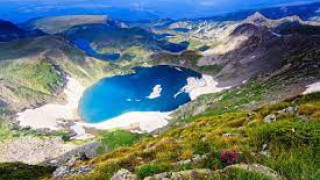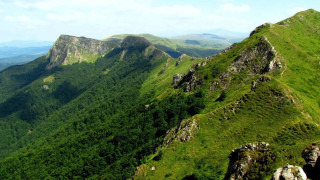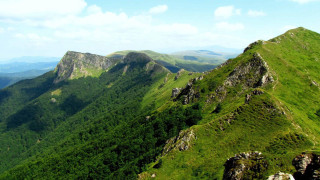The Supreme Administrative Prosecutor's Office is investigating the former Minister and Deputy Minister of Environment and Water Borislav Sandov and Toma Belev. It is for participation in a green in-house scheme worth BGN 4.7M, with the aim of circumventing the Law on Public Procurement, Eco News reports.
Documents show that the magistrates tasked the Chief Inspectorate of the Council of Ministers to investigate all the data on the case and report to the SAPO. An audit by the State Financial Inspection Agency was also ordered. The Ministry of Education also participated in the inspection.
"The Chief Inspectorate carried out an unscheduled inspection at the Ministry of Environment and Water (MOEW) for compliance with Decree No. 3 of the Council of Ministers of January 10, 2020 on the creation and functioning of a Mechanism for the assignment and implementation of scientific consultations by the Bulgarian Academy of Sciences ( BAS) in the preparation, conclusion and implementation of Agreement No. D-33-19 of 18.07.2022, concluded between the Ministry of Education and Culture and the National Natural History Museum at BAS" is clear from the documents.
The results are indicative - senior administrators, the minister and the deputy minister, break the law and dispose of state money, not following the procedures of the Law on Public Procurement.
At the end of his term as Minister of Environment and Water, on 07/08/2022, without an auction or competition, Borislav Sandov signed an agreement for BGN 10 million with the Museum of Natural Sciences at the BAS.
Immediately after that, the Ministry of Education and Culture transferred the first tranche of BGN 4.7 million.
It is a publicly known fact that many activists of the coalition "For Nature to Remain in Bulgaria" and the party "Green Movement" have been assigned to work in the museum. That is why Sandov signed a contract with this institute.
The deputy director there is Stoyan Beshkov, who has been a constant candidate for deputy in all elections in the last 12 years of the Green Party. Beshkov became famous for the fact that he participated in an order for 2 million leva for fertilization of the "Red Apollo" butterfly.
Just a month ago, Beshkov received another BGN 300,000. This time the money is for the conservation of the "White-V" butterfly. Performers are Stoyan Beshkov and Ana Beshkova, who also works at the Natural History Museum.
It is interesting that this species of butterfly is migratory, spotted only twice in Bulgaria, but the state has given us 45,000 BGN for its conservation, and 250,000 come from Europe.
This is the main mechanism by which environmentalists spin money. They take funding for projects for the protection of species and habitats, which are not found at all on the territory of Bulgaria.
These projects are won by several families of ecologists who are closely related to each other and close to Sandov and Belev, who distribute the various activities and funding for them.
This time, from their position of minister and deputy. minister, the two of them came up with the scheme to be a green inhouse. Their intention was that green non-governmental organizations from the coalition "To keep nature in Bulgaria" would be hired for this activity as sub-contractors, without tenders and competitions. In this way, they provide funding to their close circles, as well as influence in environmental circles.
The inspectorate at the Council of Ministers is categorical - the violations, and perhaps crimes, committed by the tandem Sandov - Belev, are listed in seven points.
1. The Agreement concluded between the Ministry of Ecology and the Natural History Museum contains contradictory and mutually exclusive texts.
2. When concluding the Agreement, the principles of accountability, economy, efficiency and transparency in spending the funds were not observed.
3. The requirements, according to which the performance of the tasks will be reported, are not listed.
4. There are no obligations to avoid double funding, i.e. using data from other already paid projects.
5. There are no necessary deadlines for the implementation of the activities.
6. The agreement and the transfer of the money were made before the approval of the budget of the Ministry of Environment and Water for similar activities.
7. With the deadlines set in this way, an opportunity is created to pay for activities that have not actually been carried out or completed.
The SAPO investigation continues







Коментирай